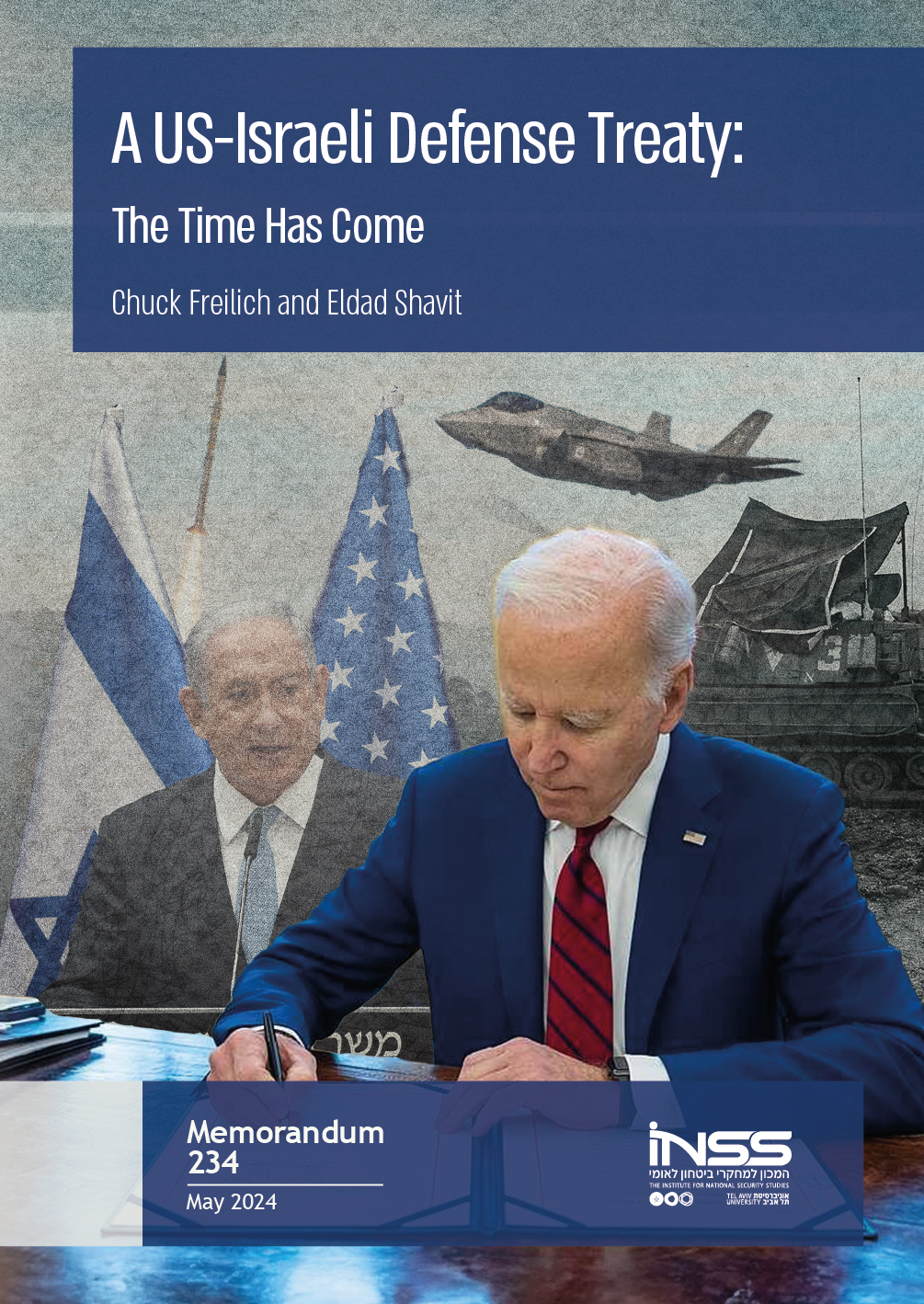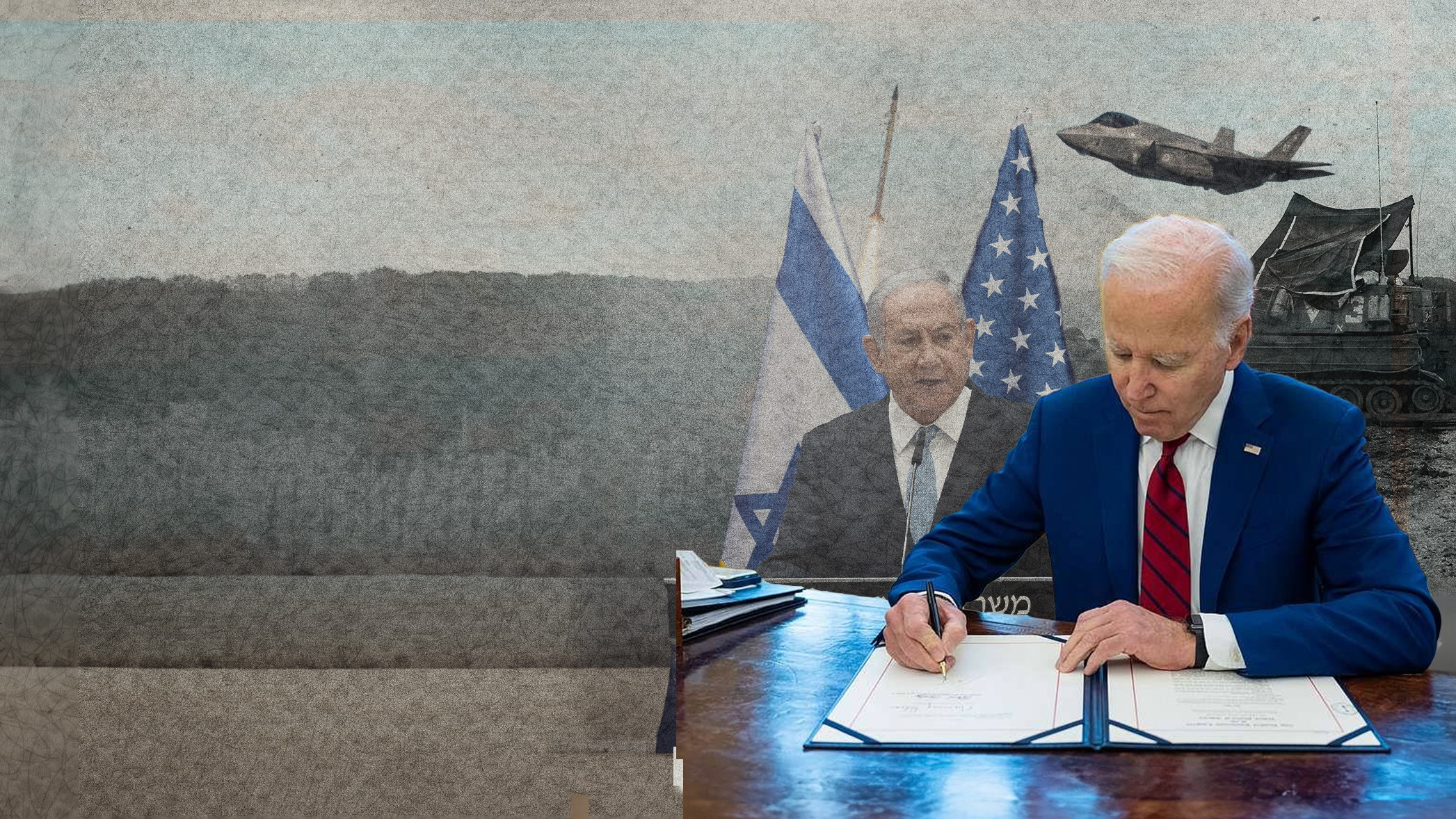Publications
Memorandum 234, May 2024

Joe Biden is reportedly one of only two US presidents to have given serious consideration to a defense treaty with Israel. A number of Israeli premiers have weighed a defense treaty over the years, primarily as a means of offsetting security concerns and public qualms regarding concessions in peace talks. Counterintuitively, perhaps, Israel’s defense establishment has long been opposed.
This study analyzes the pros and cons of a bilateral defense treaty from both the Israeli and American perspectives and proposes ways of addressing the sides’ concerns. All US defense treaties are fundamentally asymmetrical in their advantages. Nevertheless, the US, too, stands to gain important benefits, especially if a treaty with Israel was tied to the emergence of a broader US-led regional architecture, with Saudi Arabia at the center, and even more so if linked to progress on the Palestinian issue.
Click here to download the full Memorandum



